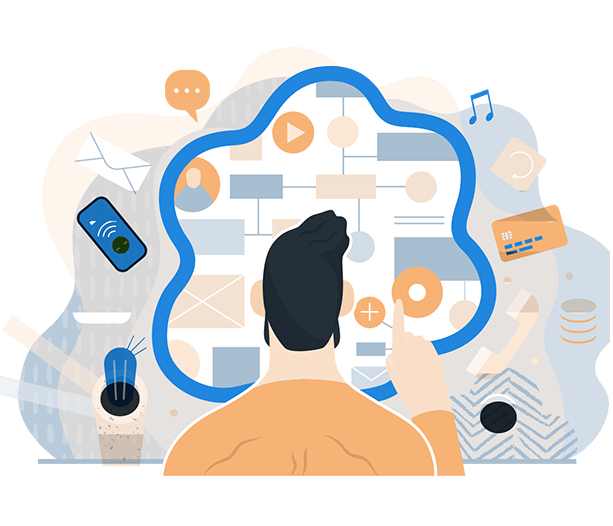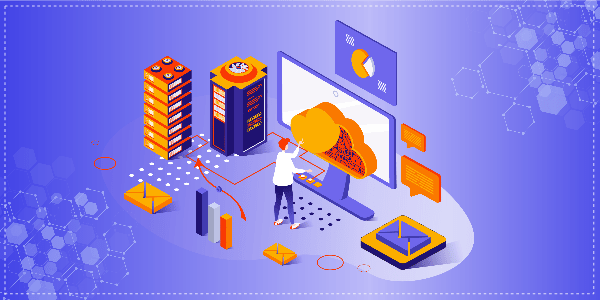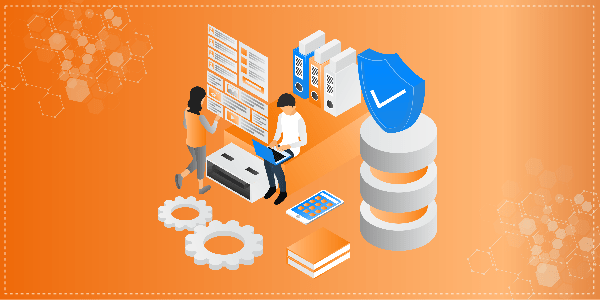
A Complete Guide to Digital Experience Platform (DXP)
A Digital Experience Platform is an all-encompassing tool that helps organizations monitor, analyze, and enhance the digital experience of a customer through their entire lifecycle. It is like a fundamental block using which a company can build, manage, and grow its digital ecosystem.
In today’s era when organizations are steering towards digital transformation, it becomes imperative for them to have a one-stop-shop for all their needs and requirements. These include content management systems, analytical tools, customer data platforms, integration with APIs, and more.
If you’re an organization looking to leverage this emerging tool, you can use this article as your guide to Digital Experience Platform (DXP) and how you can leverage it for your business.
What is Digital Experience?
A digital experience can be any activity where a customer either observes or interacts with the company directly or indirectly. In the current system where companies interact with customers through content, when any customer encounters it it forms the experience.
A simple instance could be coming across a company’s sponsored social media post. Here what the person sees, feels, and does becomes the digital experience. The same concept can be applied to a different scenario where the customer stumbles upon a company’s product on an e-commerce platform. Numerous other touchpoints such as IoT devices, kiosks, AR/VR devices, POS systems, websites, applications, email, and more exist through which a company can provide a digital experience to the customer.
Let me delve a little deeper into what a DXP encompasses.


What Does a Digital Experience Platform (DXP) Consist of?
A DXP is the evolved version of a Content Management System (CMS) and Web Experience Management (WEM). While CMS provided companies a way to manage their content across various social media channels, the WEM integrated analytics to derive more understanding of customers, the content, and more.
DXP expands on CMS and WEM, to provide a full-fledged digital experience-building platform to companies. Some of its most important components are as follows:
The CMS forms the core of a DXP. Companies can deploy content across all touchpoints such as IoT devices, websites, social media channels, kiosks, and more (as mentioned in the above section). With a headless CMS system, content can be provided to the various channels through an API, and the channels do not have to interpret and transform any of those contents.
Analytics and InsightsThis is another important core of a DXP. Tools for business intelligence, content intelligence, and big data, enable companies to understand customer behavior and make more proactive decisions on their content. These tools are also fast, which means campaigns can be modified, tweaked, and course-corrected even while they are ongoing.
AI and Machine LearningThis component works close to the analytics component and is used for creating ever-evolving models. These models will constantly learn more and more about customer behavior, purchase patterns, etc. as more information is fed to them, and then will also predict upcoming trends in the purchase, behavior, and more.
Sales Automation and Customer Relationship Management (CRM)This module will automate all repetitive sales tasks such as restocking the inventory, taking pipeline orders, managing follow-ups, and more. This way the team can focus on creating better experience strategies when it comes to their customer relationship. This module will also enable you to create long-lasting relationships with customers by personalizing their experience through data-driven analysis.
eCommerceAll content and promotional campaigns are intended to generate business for a company and e-commerce are going to become the mainstream marketplace where business happens. This would help companies handle all functionalities and features an e-commerce platform should possess. With the help of the automation component, some of its repetitive tasks would also be automated in this component.
APIs and IntegrationsThis is the main bridge that connects CMS, automation systems, analytics and intelligence tools, and other components, with the various channels of a company. Flexible APIs and integrations can help the company create cost-effective, open-architecture systems that make the process of sharing content and getting data, easy.
These are the main components of any DXP, but a good DXP will also allow you to perform experiments that can help a company take its experience to the next level. So, how do you choose the right DXP for your business?
How to Choose a Good DXP?
There are numerous factors you have to take into account while choosing a DXP. These factors will determine their quality and also how far they will help you with providing the best digital experience for your customers.
Identifying Your Requirements and GoalsIt is important to know what you require from a DXP and how those requirements can help you. Look at DXPs as investments that should provide you with a good ROI. So know that before looking at different DXPs out there, you are clear with what your needs are.
Identifying Your Requirements and GoalsIt is important to know what you require from a DXP and how those requirements can help you. Look at DXPs as investments that should provide you with a good ROI. So know that before looking at different DXPs out there, you are clear with what your needs are.
Getting a DemoBefore investing enormous sums into a platform, it is necessary to get the feel of it and see how best it can work with your company’s niche. Trying and testing through demos is of paramount importance before finalizing the DXP.
Check for Reviews from ExpertsNumerous experts and publishers from the industry review platforms trying to highlight their pros and cons. You can access these reviews to understand how the various features can suit your company and its business, while also knowing if a particular DXP is good or not. Since the review sources are authentic, it helps you make a safer decision.
Create a RoadmapThis helps you understand the various milestones you want to achieve once a DXP system is implemented for the business. The roadmap can act as a guiding material that can help you determine how close or far away you are from your goals, and how much your current DXP is helping you with them.
Conclusion
Now that you have a brief understanding of what DXPs are and how you can implement them for your business, you can delve deeper by looking at more features and components that come within a DXP, and their variations. Based on these you can choose a good DXP for your company and take the first step towards elevating your business and preparing it for the digital era.
Recommended Articles

Journey of Digital Transformation to Achieve Data-driven Insights
Digital transformation essentially refers to the adoption of digital technologies by organizations towards improving - business process efficiency, customer experience, supply chain visibility and predictability, optimization of network operations, and culture.
Read More

How Cloud-based Security is benefitting Data-driven Organizations?
Cloud computing is one of the trendiest new world technologies. It has already hit several milestones and is regularly shaping the way we experience technology in our world. As cloud infrastructure grows, cloud security is also becoming an important part of today’s businesses.
Read More

How is Data Science shaping the future of Modern Data Warehousing?
With evolving technologies and the growing complexity of business requirements, data has become more critical than ever. Data forms the backbone for all business decisions. In the years to come, data science will become a core factor in empowering business users and offering them greater autonomy in work by unleashing the power of modern data warehouses.
Read More
Contact Us
Decision Minds
Leaders in Cloud Analytics, Multi-Cloud deployments, Business Intelligence and Digital Engineering.
Interested in doing a project with us? We would love to hear from you.
Enquiries: sales@decisionminds.com
Careers: career@decisionminds.com
2150 N First St, Suite 446,
San Jose, CA 95131
Phone: (408) 475-7873,
(408) 215-2031
Fax: (408) 709-1830, sales@decisionminds.com
1205 BMC Drive, Ste.122,
Cedar Park, TX 78613
Unit No G03, Ground Floor,
C2 Block, Brigade Tech Gardens,
Brookfield, Bengaluru,
Karnataka - 560037

